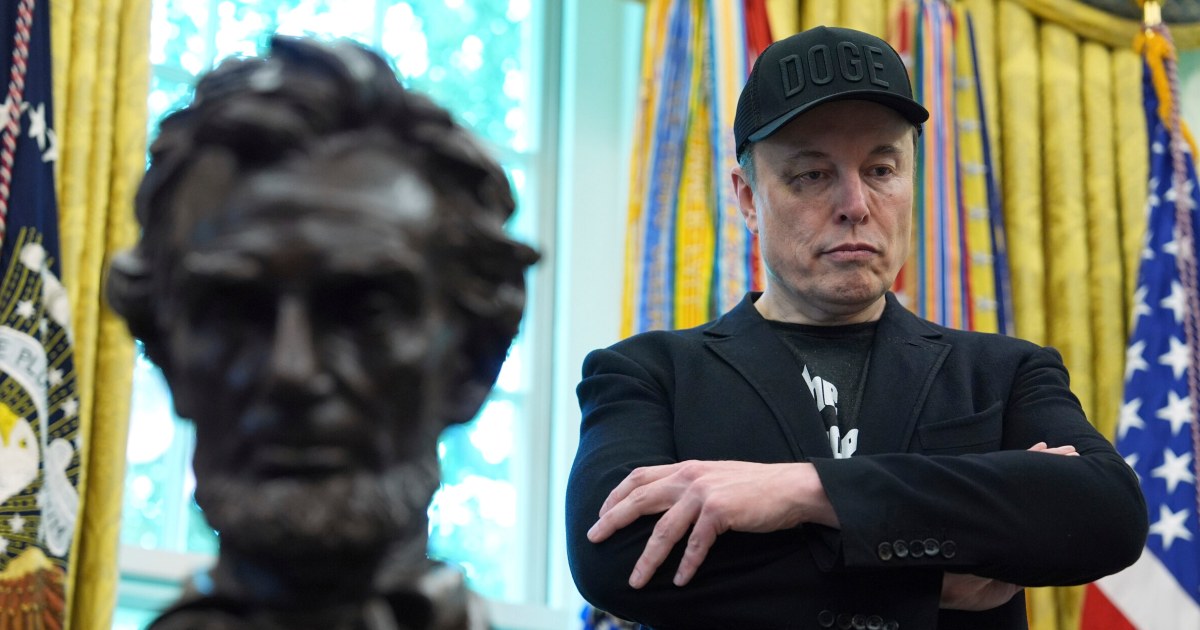Elon Musk has reignited his opposition to a significant spending bill championed by former President Donald Trump. Musk’s criticisms, labeling the bill ‘insane and destructive,’ come as Senate Republicans aim to finalize the legislation by July 4. This renewed conflict highlights the ongoing debate over economic policy and its potential consequences for the nation’s future.
Musk’s concerns center on the bill’s impact on job creation, strategic harm to the country, and its potential to exacerbate the national debt. His outspoken stance reflects a broader unease among some Republicans and the public regarding the bill’s budgetary implications and its focus on industries of the past rather than the future.
This article will delve into the specifics of Musk’s criticisms, the bill’s key provisions, and the potential consequences for the American economy. We will also examine the political context surrounding this debate and the challenges Senate Republicans face in securing enough votes for passage.
Musk’s Renewed Attacks on Trump’s ‘Big, Beautiful Bill’
In a series of posts on X, Elon Musk launched a scathing critique of the proposed spending bill, asserting that it would ‘destroy millions of jobs in America and cause immense strategic harm to our country!’ He described the bill as ‘utterly insane and destructive,’ arguing that it favors outdated industries while undermining the industries of the future.
Musk amplified a poll indicating public disapproval of the bill due to its budgetary effects. According to the poll, a significant percentage of Republican respondents prioritized reducing the national debt, while a majority of all respondents favored maintaining current spending levels on programs like Medicaid.
Musk has consistently voiced concerns about the bill’s impact on the national deficit, arguing that it would negate the savings achieved by the Department of Government Efficiency, an office he previously led under the Trump administration. He reiterated his view that the bill puts ‘America in the fast lane to debt slavery!’
Key Provisions of the ‘Big, Beautiful Bill’
The 940-page megabill encompasses a wide range of spending initiatives aligned with President Trump’s agenda. While specific details remain subject to negotiation, the bill reportedly includes provisions related to infrastructure, defense, and tax cuts. However, it also faces criticism for potential cuts to Medicaid and other social programs.
One contentious aspect of the bill is its potential impact on the national debt. Critics, including Musk, argue that the bill’s tax cuts and spending increases would significantly increase the deficit, leading to long-term economic challenges. Proponents, on the other hand, contend that the bill would stimulate economic growth and generate revenue to offset the increased debt.
The bill’s supporters argue that it is essential to fulfilling President Trump’s promises to the American people and ensuring the nation’s continued prosperity. They emphasize the bill’s investments in infrastructure and defense, claiming that these initiatives will create jobs and strengthen national security.
Senate Republicans Face Political Challenges
Senate Republicans are facing internal divisions over certain provisions of the bill, including potential cuts to Medicaid that could negatively impact rural hospitals. Sen. Thom Tillis, R-N.C., cited the loss of rural hospital funding as a reason for his opposition to the bill.
The need to secure enough votes for passage before the July 4 deadline adds to the political pressure. With a narrow majority in the Senate, Republicans cannot afford to lose too many votes from within their own party. This necessitates careful negotiation and compromise to address the concerns of dissenting senators.
The political challenges are further complicated by the upcoming midterm elections. Senators are wary of taking positions that could alienate voters or jeopardize their re-election prospects. This creates a complex dynamic in which political considerations often outweigh policy concerns.
Musk’s Diminished Influence in Washington
While Musk no longer holds an official position in the government, his criticisms of the bill carry weight due to his prominent public profile and his past involvement in shaping economic policy. His opposition to the bill echoes the concerns of some Republicans who are wary of its potential impact on the national debt.
Musk’s ability to influence public opinion through his social media presence cannot be discounted. His posts on X, reaching millions of followers, can shape the debate and put pressure on lawmakers to reconsider their positions.
Although his formal influence in Washington has waned, Musk remains a significant voice in the discussion of economic policy and its potential consequences for the American people.
Conclusion: A Contentious Debate with Far-Reaching Implications
Elon Musk’s renewed attacks on Trump’s spending bill underscore the ongoing debate over economic policy and its potential consequences for the nation’s future. The bill’s proponents argue that it is essential for stimulating economic growth and fulfilling President Trump’s promises, while critics warn of its potential to exacerbate the national debt and harm key social programs.
The political challenges facing Senate Republicans in securing passage of the bill highlight the deep divisions within the party and the complexities of navigating economic policy in a politically charged environment. The outcome of this debate will have far-reaching implications for the American economy and the lives of millions of citizens.
As the debate continues, it is crucial for policymakers to carefully consider the potential consequences of their decisions and to prioritize policies that promote sustainable economic growth, fiscal responsibility, and the well-being of all Americans.

Leave a Reply